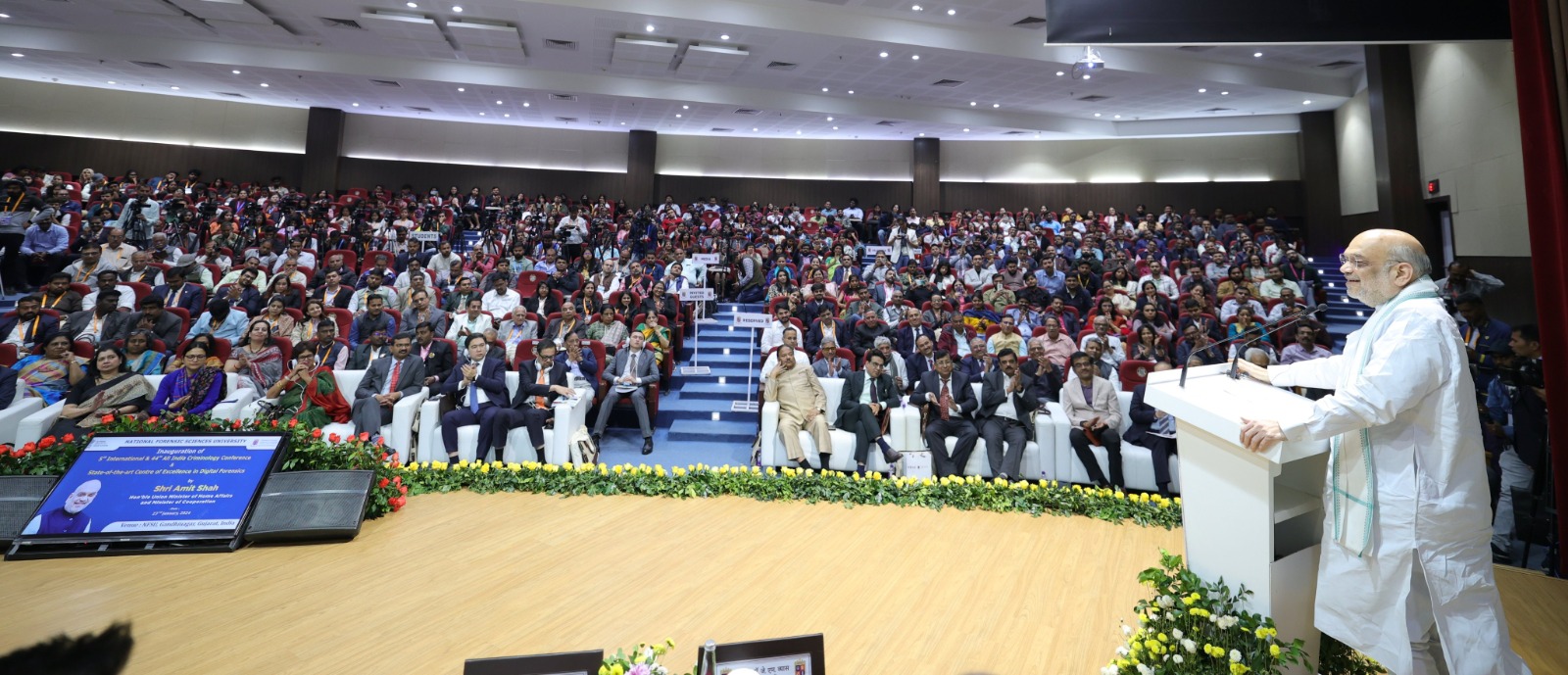- With the use of technology in the new laws, justice will now be available, affordable, and accessible in the new India
Central Minister of Home Affairs and Cooperation, Amit Shah, addressed the inauguration ceremony of the 5th International and 44th All India Criminal Science Conference at the National Forensic Sciences University (NFSU) on Tuesday, stating, “Under the leadership of Prime Minister Shri Narendra Modi, the government has undertaken more than 50 decades of transformative work in the last 10 years. Justice will now be available, affordable, and accessible with the use of technology as prescribed in new laws in the new India.”
Under the leadership of visionary Prime Minister Narendra Modi, Amit Shah, the Minister of Home Affairs and Cooperation, proposed new laws in India, amending the laws previously made by the British. The earlier laws aimed to secure British rule and punish Indians, whereas the new laws have been framed with the fundamental principle of justice. It’s significant to note that the term ‘punishment’ was associated with the previous laws, whereas the new laws emphasize ‘justice.’ Shah believes that the mandatory visit of a forensic science officer to the crime scene for crimes punishable by seven years or more will simplify investigations and ease the work of judges. With technology’s assistance, the criminal justice system’s challenges will be overcome, making India’s legal system the most modern in the world within 5 years.
Amit Shah, a strategist in Indian politics known for eliminating the mindset of servitude, has established a system where more than 9,000 forensic science officers will be trained every year in the next 5 years. It is also assured that with the use of technology in the new laws, justice will be available, affordable, and accessible. Three new laws in the coming era will mark the beginning of the era of policing and justice. In the next year, 9 campuses of NFSU will open across the country, playing a crucial role in preparing resources for forensic science in the criminal justice system.
Shah, the architect of Indian politics committed to justice, has created a system that will produce more than 9,000 forensic science officers annually in the next five years. This development is poised to make India’s criminal justice system the most modern in the world within 5 years. The new laws emphasize the importance of forensic science in investigations, prosecutions, and judicial processes, opening up significant opportunities for the youth.
The public has witnessed that after independence, a government works transformationally every four to five decades, but the Modi government has achieved more than 50 decades of transformative work in just 10 years. Shah, committed to justice, believes that forensic science should not only be used in investigations but should also be an integral part of the justice delivery process. He also acknowledges the need for the criminal justice system to stay two generations ahead of criminals. This is also a coincidence that the inauguration of the 5th International and 44th All India Criminal Science Conference at the National Forensic Sciences University is happening at a time when India’s criminal justice system is entering a new era.


